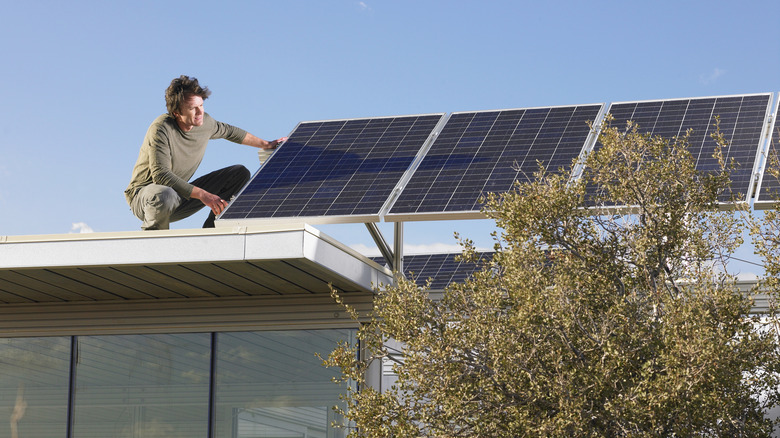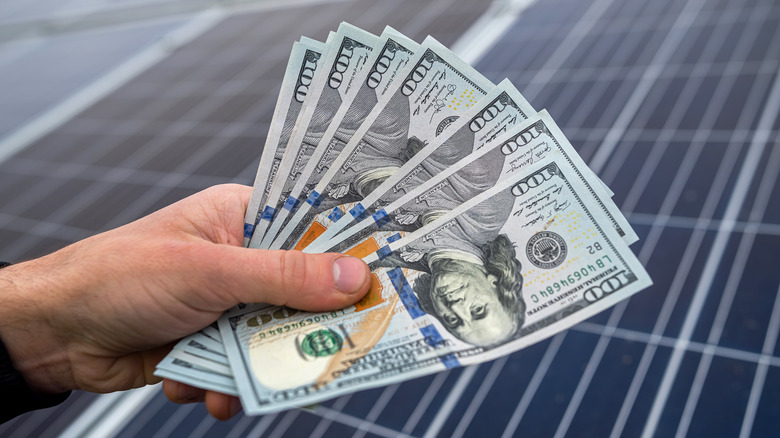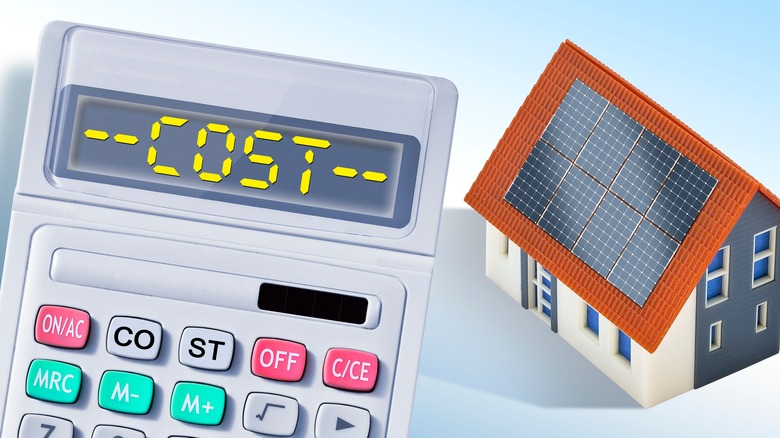
Siri Stafford/Getty Images
There are many reasons why homeowners might consider installing solar panels on their homes, including reducing their carbon footprint and saving on costs. According to Solar Insure, more than 4.2 million households in the U.S. will use the sun to power their homes in 2024, and, according to Forbes, more than 82% of homeowners who installed solar panels would recommend them to others. But, there are important things to know before installing solar panels on your home.
First, it’s important to weigh the pros and cons of solar panel systems because they are not necessarily for everyone. On the one hand, you can save money on your energy bill, become less dependent on the power grid, and produce clean energy instead of relying on other forms, such as coal, which contributes to pollution. That being said, you must also contend with expensive installation costs, diminishing power output as the panels age, and the reality that most solar panels may end up in landfills, potentially creating an environmental problem of their own.
The benefits of solar panels

Alfexe/Getty Images
Regardless of where you live, energy costs are going up, prompting homeowners to look at ways they can save money. The comforts afforded to most Americans, like air conditioning, home appliances, and electronics, are difficult to go without as they have become essential to daily life. Installing solar panels can save you an average of $125 monthly, according to Forbes. That means your savings could add up to $1,500 a year. You can also save money when installing your own solar panels at home with these handy tools.
Self-reliance has grown in popularity, with more and more people wanting to live off-grid. As of 2020, upward of 180,000 households in the U.S. had relinquished their dependence on public utilities, according to Home Power magazine (via Daily Mail Online). Solar panels are a great way to generate and store energy if your goal is a self-sufficient homestead.
While the alternative, namely coal, is a reliable means of generating power, it also contributes an estimated 15.22 billion metric tons of carbon dioxide globally, according to Statista. Depending on your location, your power grid could be supplied by a coal plant. However, by installing solar panels, you can reduce the amount of energy you need from the coal plant, replacing a portion of it with power from the sun.
The downsides to solar panels

Francesco Scatena/Shutterstock
While solar energy systems may save you some money on your monthly utilities bill, they are expensive to install. The cost is reflected in the number of panels needed, the quality of the panels, and the difficulty of the installation. A new solar panel energy system could cost anywhere from $10,000 to around $18,000, according to Forbes, which may be financially unfeasible for some. However, there are available tax credits that can help offset the cost. Finding out how many solar panels you’ll need to power your home is a good start to see if installing them is possible.
While the technology has improved, each solar panel can lose around 0.5% of its power generation ability yearly, according to the National Renewable Energy Laboratory. That means your first year of use will generate the most power and provide the most savings, with each subsequent year offering diminishing returns.
Another often neglected topic regarding solar panels is where they go after you replace them. While initial projections estimated that these panels would last the average household 30 years, according to the International Renewable Energy Agency, solar customers may be swapping them out sooner. Harvard Business Review calculates that it costs up to $30 to recycle a solar panel, but only a few dollars to throw it in a landfill. So, well-meaning homeowners looking to help the environment may end up creating an overabundance of solar panel trash. However, the hope is new developments in recycling can help alleviate this potential problem.